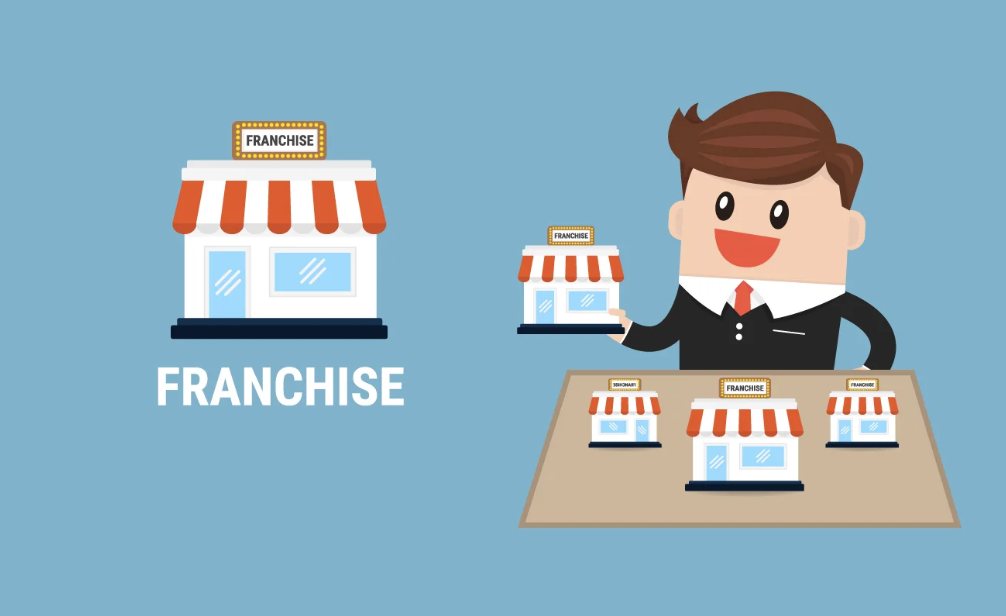Franchise Fees Explained: What Are You Really Paying For?

If you’re exploring a franchise for sale, you’ve likely come across the term franchise fee. But what exactly does this fee cover? Why do you have to pay it? Is it worth it?
In this blog, we’ll break down franchise fees, what they include, and how they vary depending on the brand. This will help you decide if a franchise in the UK fits your goals and budget.
What Is a Franchise Fee?
A franchise fee is the price you pay to join a franchise network. It gives you the legal right to run the business using the brand’s name, products, systems, and support. This fee is usually paid upfront before your franchise agreement begins.
The franchise fee is not the total cost of running the business. It’s just the entry point. You’ll also need to cover startup costs, equipment, marketing, rent, and more.
What Does the Franchise Fee Usually Include?
Franchise fees vary, but they often include the following:
1. Brand Rights
You get permission to use a well-known brand. This includes logos, marketing materials, and the company’s reputation. This can help you attract customers faster than starting a new business from scratch.
2. Initial Training
Most franchisors provide full training. This helps you learn how the business works, even if you have no experience in the industry.
3. Setup Support
You may receive help with setting up your location, website, or service area. This could include design, layout, signage, and even help hiring staff.
4. Operations Manual
Franchises provide a step-by-step guide for running the business. This manual explains everything from daily tasks to customer service to sales.
5. Launch Marketing
Some franchises include an initial marketing campaign to promote your business launch in your area.
How Much Is a Typical Franchise Fee in the UK?
In the UK, franchise fees usually range from £5,000 to £30,000, depending on the brand, industry, and level of support provided.
Here’s a rough guide:
| Franchise Type | Typical Fee |
|---|---|
| Low cost franchise | £5,000 – £10,000 |
| Mid-range franchise | £10,000 – £20,000 |
| Large national franchise | £20,000 – £30,000+ |
For example, cleaning franchises or care franchises often have lower entry fees compared to restaurants or fitness chains.
What About Ongoing Fees?
In addition to the upfront franchise fee, many franchises charge ongoing fees. These may include:
• Royalty Fees
Usually a percentage of your revenue (e.g., 5 to 10%). This helps fund ongoing support and access to the brand’s systems.
• Marketing Fees
Some franchisors charge monthly marketing contributions to support national advertising or digital campaigns.
Is the Franchise Fee Worth Paying?
It depends on what you’re looking for. Here are a few things to consider:
It’s worth it if:
- You want a business with a proven model.
- You value expert training and ongoing support.
- You want to reduce your risk of failure.
- You prefer structure and clear guidance.
It may not be worth it if:
- You want full creative control.
- You dislike following set rules and systems.
- You’d rather build your own brand from the ground up.
Are All Franchise Fees the Same?
No. Every franchisor sets their own fees based on the value they provide. A high fee might offer more support and faster success. A low fee might come with fewer services, so you’ll do more on your own.
That’s why it’s important to compare multiple franchise opportunities. Websites like Franchise Local list various franchises in the UK, including low cost franchises, care franchises, accountancy franchises, and more.
You can filter by budget, location, and industry to find the right match for you.
How to Evaluate a Franchise Fee
Before you pay, ask these questions:
- What exactly does the franchise fee include?
- Are there other startup or ongoing costs?
- How much support will I receive after launch?
- What results have other franchisees achieved?
- Can I speak with existing franchisees?
A good franchisor will be transparent. If they are vague or avoid questions, consider it a red flag.
Final Thoughts
Understanding franchise fees is key before you invest in any franchise for sale. While the upfront cost may seem high, you’re not just buying a name. You’re getting a full package- training, support, tools, and a tested system.
When you choose wisely, the franchise fee can lead to long-term success and peace of mind. Use trusted resources like Franchise Local to explore your options and find the right fit for your business journey.



